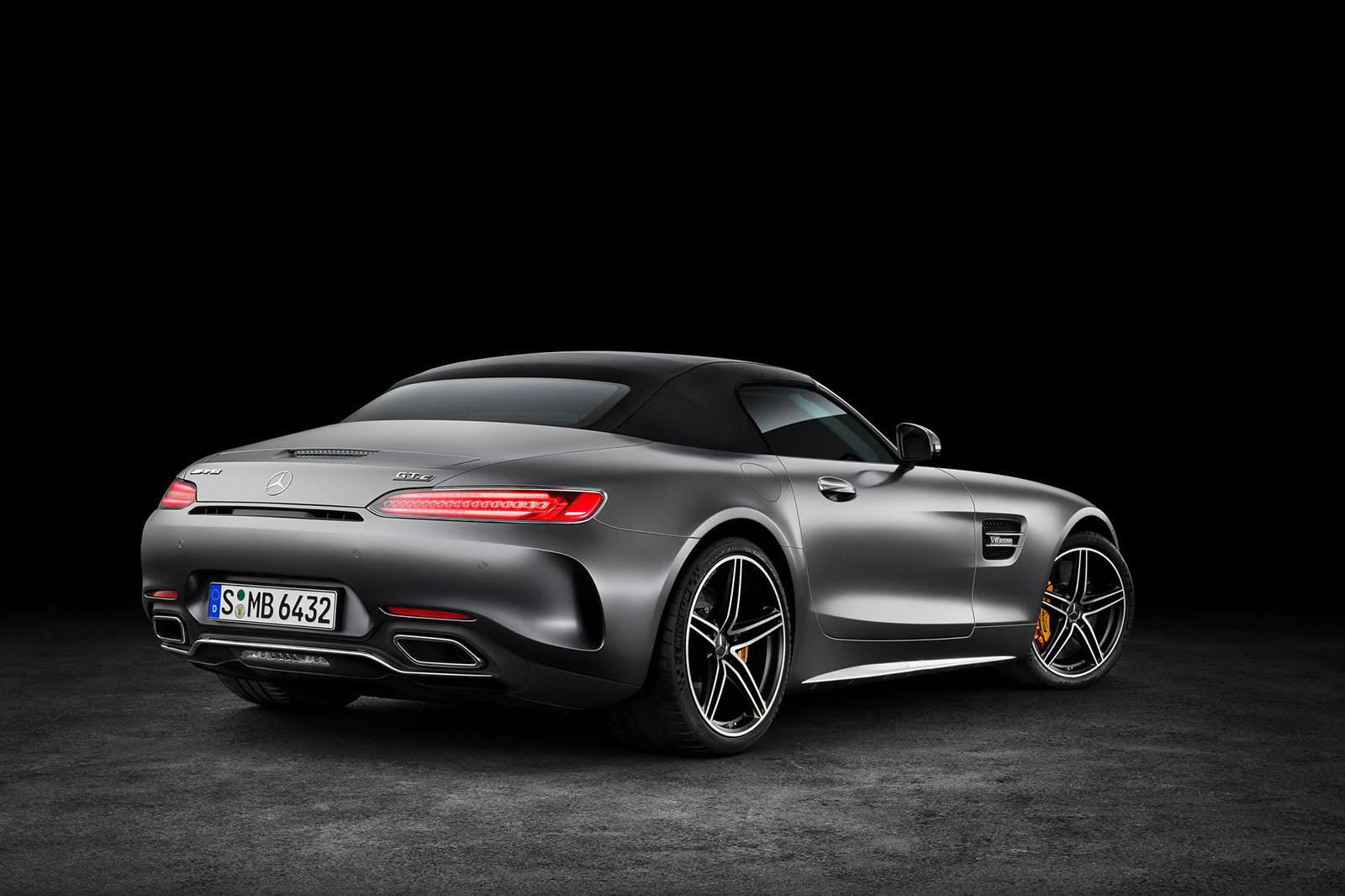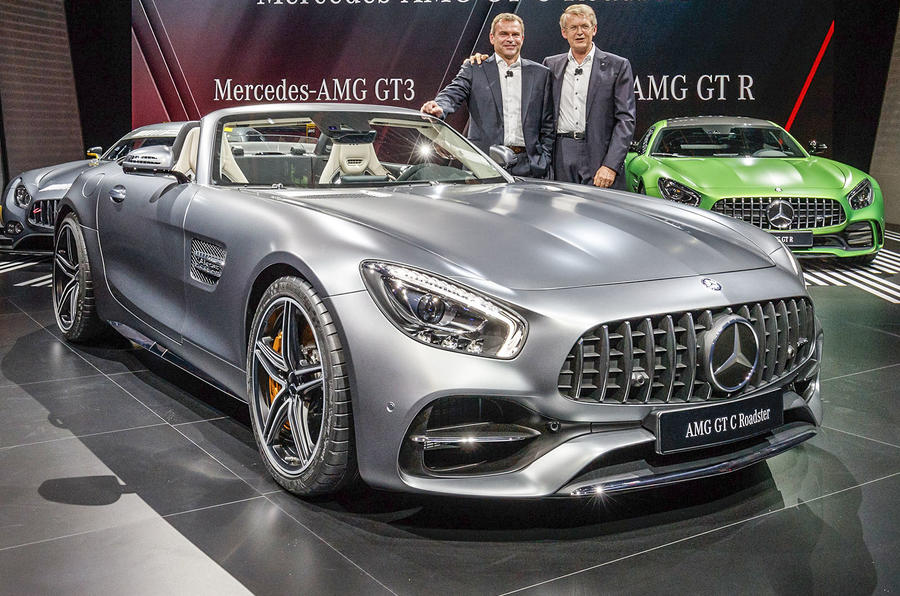The Mercedes-AMG GT Roadster pricing has been revealed, with the model set to cost from £110,145 for a standard car to £143,245 for the range-topping GT R coupé. Both were revealed at the Paris motor show earlier this year.
This puts the entry-level drop-top at an £11,950 premium over the coupé and £3650 below the price of the Jaguar F-Type SVR convertible. The top-spec GT C Roadster is priced at £139,445, which is £3679 more than the Porsche 911 Turbo Cabriolet.
The range-topping GT R coupé is aligned directly with the McLaren 570S coupé; its £143,245 price tag undercuts the McLaren by just £5. Deliveries are not expected to begin until April 2017.
Read about this year's Paris motor show here
Options on the entry-level GT Roadster and GT R range-topper include the Premium equipment pack, which at £4195 brings keyless entry and go, a reversing camera and stainless steel door sills as well as heated seats on the GT R, a £3895 carbonfibre package, £395 yellow seat belts and £7500 for the GT R launch car's metallic green paint.
Semi-autonomous driver assistance tech is also optionable, with a £595 package that adds lane keeping and blind spot assists, while the £1695 Driving Assistance package adds adaptive cruise control and a pre-safe system that prepares the car for an accident if an imminent collision is detected.
Mercedes-AMG GT R smashes rear-wheel drive Nürburgring record
Sporting the styling updates unveiled on the 577bhp GT R back in June, the GT Roadster features AMG’s distinctive new 300 SL Panamericana inspired grille, which receives an altered shape and vertical chrome bars instead of the earlier blade treatment seen on the GT Coupé.
























































Join the debate
Add your comment
V8 and all that stuff...
Mercedes GT C
For your information, the GT C can be driven manually if so desired!
beautiful!
Though the grille design is a bit too in-your-face, or a bit like a locomotive. The vertical slats are uncharacteristic and a bit too loud. Having these vertical slats recessed from the grille opening and perhaps having a subtle concave shape to it would give it a more elegant and sophisticated look.
I hope this will influence the future styling of the SL and SLK. The upcoming SL will lose the power folding hardtop, which is puzzling as it suggest it will be more sporty than luxurious which due to weight savings and the loss of convenience in favour of simplicity. This puts it almost in competition with MB's own GT.
It's interesting that BMW has been over expanding their SUV models (which is unfortunate), while MB is expanding their cabrio line (C, SL, SLK, S, and the GT) which is nice sign that MB still cares about their sporty and luxury models even though they may not be generating the same amount of sales and profits of a SUV.
A dissenting voice
But while those racers were light and athletic, their modern equivalents have become far too wide and long. Look at the elongated bonnet and the ultra wide centre console. McLaren shows us that sports cars need not be bloated.
As such these Mercedes will feel more at home in the Boulevard St Germain than speeding down country lanes.
I thought the point of the GT range was to offer a more focused alternative to the SL, but reading this article I doubt whether these giant cars manage to differentiate themselves sufficiently from the SL range.
Hence our point